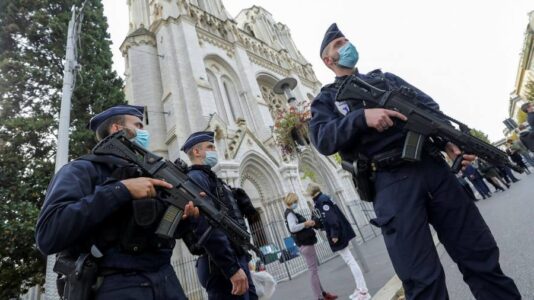
European countries urged to step up the counter-terrorism effort
EU governments are being urged to step up the fight against Islamist terrorism by widening authorities’ access to encrypted online communication and sanctioning migrants who refuse to “integrate”, following recent terrorist attacks in Europe.
A draft EU declaration, drawn up by the bloc’s current German presidency and seen by the Financial Times, calls on member states to “uphold common values and the European way of life”. It comes after France and Austria have suffered deadly attacks, including the beheading of schoolteacher near Paris and the murder of three people in Nice last month, and shootings by a suspected Islamist gunman that killed four people in Vienna last week.
The text, which is still a draft and is due to be endorsed by EU justice and home affairs ministers on Friday, calls on the European Commission and member states to “take systematic action to prevent radicalisation” by using existing legal instruments including upcoming regulation to regulate illegal content online. The draft also says governments should “consider the matter of data encryption so that digital evidence that has been collected can be used by the competent authorities” in terrorist cases.
Privacy advocates and civil liberties groups have vehemently opposed attempts by law enforcement to access end-to-end encrypted digital communication which are a mainstay of services such as WhatsApp, Signal and Telegram. EU justice ministers are considering plans for authorities to access encrypted messages in a “targeted and lawful” way — a plan initially proposed mainly as an effort to break international child abuse rings and organised criminal networks.
Diplomats said the latest counter-terrorism declaration was drawn up by officials in Berlin, Vienna, and Paris and could also be endorsed by EU leaders during their latest videoconference next week. Germany’s chancellor Angela Merkel, France’s president Emmanuel Macron, Austria’s Sebastian Kurz, and EU leaders Charles Michel and Ursula von der Leyen will on Tuesday discuss the bloc’s response to terrorist attacks.
The eight-page draft calls for robust integration schemes for migrants in the EU, warning that integration is a “two-way street” which requires incomers to “make an active effort to become integrated”. The paper warns that governments should have stronger sanctioning powers against people who have shown a “sustained refusal to integrate”. It added that organisations “that support content hostile to integration will be excluded from receiving public funding”.
“Violations of the democratic order and values of European member states or of their national laws should be neither downplayed nor tolerated, no matter what motivates them,” says the text.
The language echoes the French government’s recent crackdown on “Islamist separatism”.
An EU diplomat said countries other than France and Austria were wary of endorsing a statement that made the link between counter-terrorism and migration policy.
Some EU officials think the bloc is better off addressing technical measures to improve security co-operation on a subject that remains largely the domain of national authorities.
Brussels has proposed steps such as pressing technology companies to remove online terrorist content more quickly, improving the interoperability of national data systems and expanding the mandate of Europol, the EU’s law enforcement agency. EU negotiators from the parliament and member states are due this week to discuss a longstanding plan that would force platforms to remove terrorist content within one hour of being alerted by authorities or face penalties.
Ylva Johansson, EU home affairs commissioner, is due to outline Brussels’ position on “fighting terrorism and the right to freedom of expression and education” at the European Parliament on Wednesday.
Source: The Finance Info





